Understanding "40 meters" becomes easier when comparing it to everyday objects. The historic Ha'Penny Bridge in Dublin spans this length, while three semi-trailer trucks lined up reach about the same distance. It's roughly half the height of a massive Giant Sequoia tree, and matches the Chicago Water Tower's height perfectly. In sports, it equals two bowling lanes end-to-end or one and a half baseball base distances. Two regulation tennis courts side by side span 40 meters, while the famous Statue of Liberty and Big Ben clock tower use this measurement as a reference point. A double cricket pitch also approximates this length.Understanding the Basic Measurement of 40 Meters
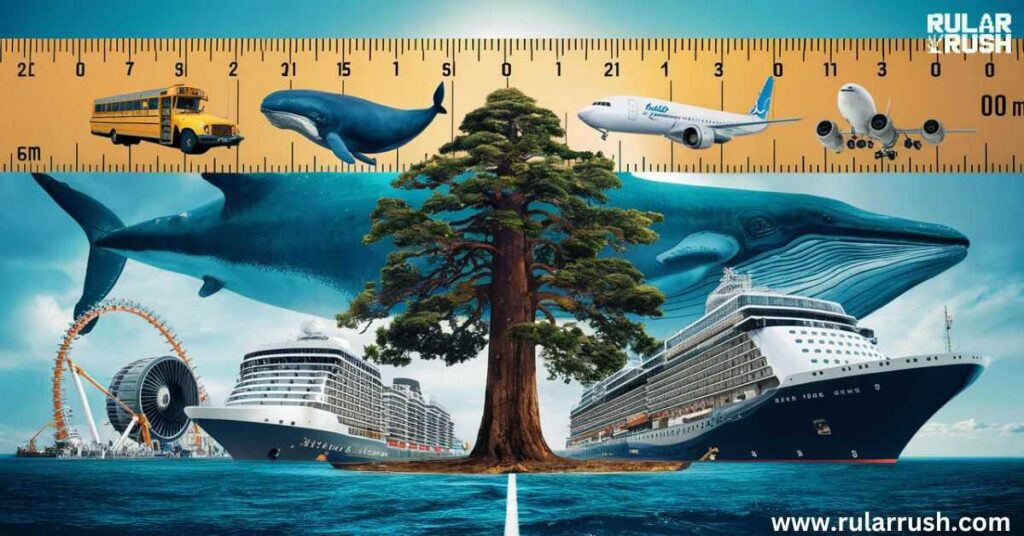
Before exploring examples, let’s clarify what 40 meters means in different measurement systems:
- 131.2 feet
- 43.7 yards
- 1,574.8 inches
- 0.04 kilometers
- 4,000 centimeters
This substantial length appears in architecture, nature, sports, and transportation. It’s a measurement that bridges the gap between human-scale objects and larger structures.
The World’s Largest Animal: Blue Whale Comparison

The magnificent Blue Whale provides a perfect natural example of 40 meters. These marine giants can reach lengths matching our target measurement.
Key whale statistics:
- Maximum length: 39-40 meters (largest recorded specimens)
- Average adult length: 33-37 meters
- Weight range: 140,000-180,000 kg
- Heart size: 2 meters in diameter
“The Blue Whale stands as nature’s own measuring stick for understanding massive scales.” – Marine Biology Quarterly
Engineering Marvel: Semi-Trailer Truck Combinations

Three standard semi-trailer trucks lined up create an excellent 40-meter example. This comparison helps visualize the length in terms of everyday traffic.
Truck specifications:
| Component | Single Truck | Three Trucks Combined |
|---|---|---|
| Cab Length | 2.5 meters | 7.5 meters |
| Trailer Length | 13.5 meters | 40.5 meters |
| Total Height | 4.11 meters | 4.11 meters |
| Maximum Width | 2.6 meters | 2.6 meters |
Natural Giants: Giant Sequoia Trees

The majestic Giant Sequoia trees offer another impressive reference point. 40 meters represents approximately half the height of these natural wonders.
Notable Sequoia facts:
- Full mature height: 75-85 meters
- Base diameter: 6-8 meters
- Crown spread: 30-40 meters
- Age of largest specimens: 2,000-3,000 years
- Location: California’s Sierra Nevada Mountains
Historic Architecture: Chicago Water Tower

The limestone Chicago Water Tower stands exactly 40 meters tall, offering a perfect architectural example of this height.
Tower details:
- Construction date: 1869
- Style: Gothic Revival
- Material: Limestone blocks
- Purpose: Originally housed a 138-foot standpipe
- Current status: Historic landmark and tourist center
Sports and Recreation: Bowling Lane Perspectives

A fascinating way to visualize 40 meters is through the lens of bowling, a sport enjoyed by millions worldwide. Two regulation bowling lanes placed end-to-end provide a perfect 40-meter example that many can relate to from personal experience.
Standard bowling measurements in detail:
- Single lane length: 19.2 meters (63 feet)
- Approach area: 4.6 meters (15 feet)
- Lane width: 1.05 meters (41 inches)
- Pin deck: 0.91 meters (3 feet)
- Gutters: 0.23 meters (9 inches) each
- Total double-lane length: 38.4 meters (approaching 40 meters)
Additional bowling alley specifications:
| Feature | Measurement |
|---|---|
| Ball return system length | 18.3 meters |
| Pin setter depth | 2.13 meters |
| Required ceiling height | 3.66 meters |
| Recommended side clearance | 0.61 meters |
Interesting facts about bowling lanes:
- Professional lanes are coated with oil in specific patterns
- The wood or synthetic surface has 39 boards
- Temperature and humidity affect lane conditions
- Professional lanes must be certified annually
- Modern lanes use synthetic materials that last 3-5 times longer than wood
“Understanding the precise measurements of bowling lanes helps visualize larger distances in relatable terms.” – Professional Bowlers Association Guidelines
Practical applications:
- Architectural planning for bowling centers
- Tournament space requirements
- Emergency exit placement
- HVAC system design
- Lighting installation specifications
This comparison helps people grasp 40 meters through a familiar recreational setting, making the measurement more tangible and understandable.
Baseball Field Dimensions
The baseball base distance multiplied by one and a half creates another sports-related reference point for 40 meters.
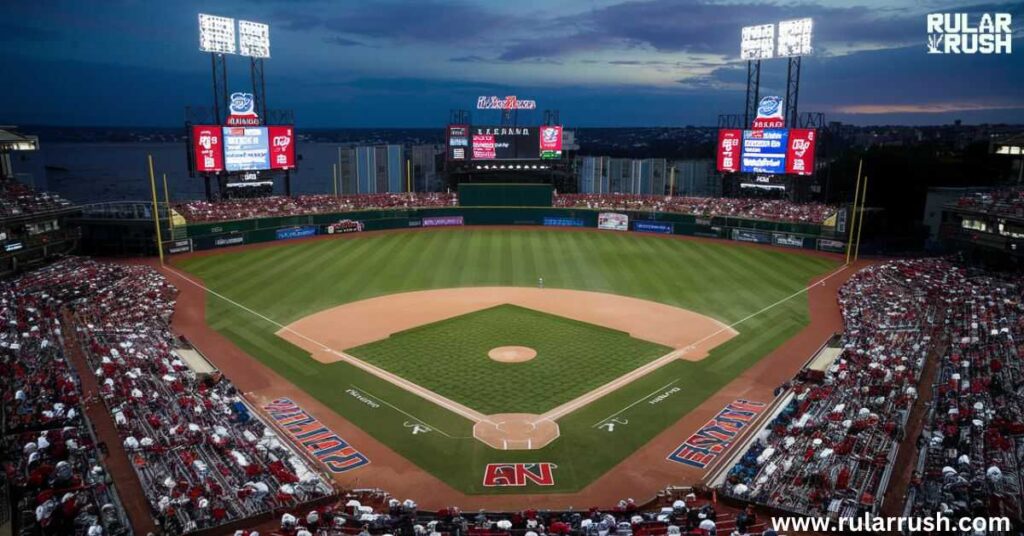
Field measurements:
- Standard base distance: 27.4 meters
- Home to second base: 38.8 meters
- Pitcher’s mound distance: 18.4 meters
- Outfield minimum: 95 meters
- One and a half base distances: 41.1 meters
Tennis Court Configurations

Two regulation tennis courts placed side by side create a precise 40-meter width measurement.
Court specifications:
| Feature | Measurement |
|---|---|
| Singles court width | 8.23 meters |
| Doubles court width | 10.97 meters |
| Court length | 23.77 meters |
| Two courts combined width | 40.23 meters |
Iconic Landmarks: Statue of Liberty

The Statue of Liberty provides an impressive comparison, with 40 meters representing roughly half its total height.
Monument measurements:
- Total height (with base): 93 meters
- Statue height alone: 46 meters
- Arm length: 12.8 meters
- Face height: 3.3 meters
- Base width: 27.4 meters
Historic London: Big Ben Proportions
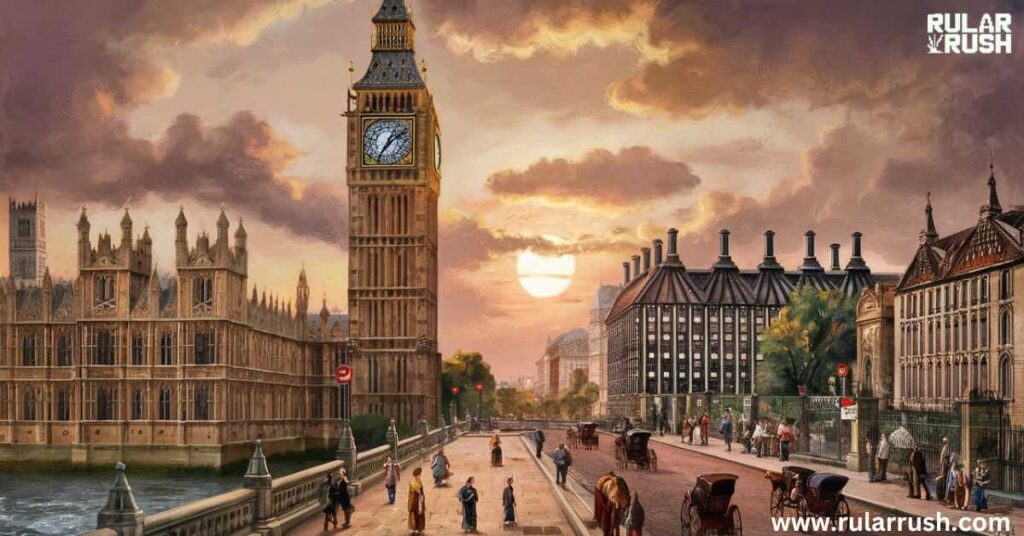
Big Ben offers another landmark comparison, with 40 meters equaling two-fifths of its total height.
Clock tower statistics:
- Total height: 96.3 meters
- Clock face diameter: 7 meters
- Minute hand length: 4.2 meters
- Number of steps: 334
- Bell weight: 13.7 tons
Dublin’s Ha’Penny Bridge
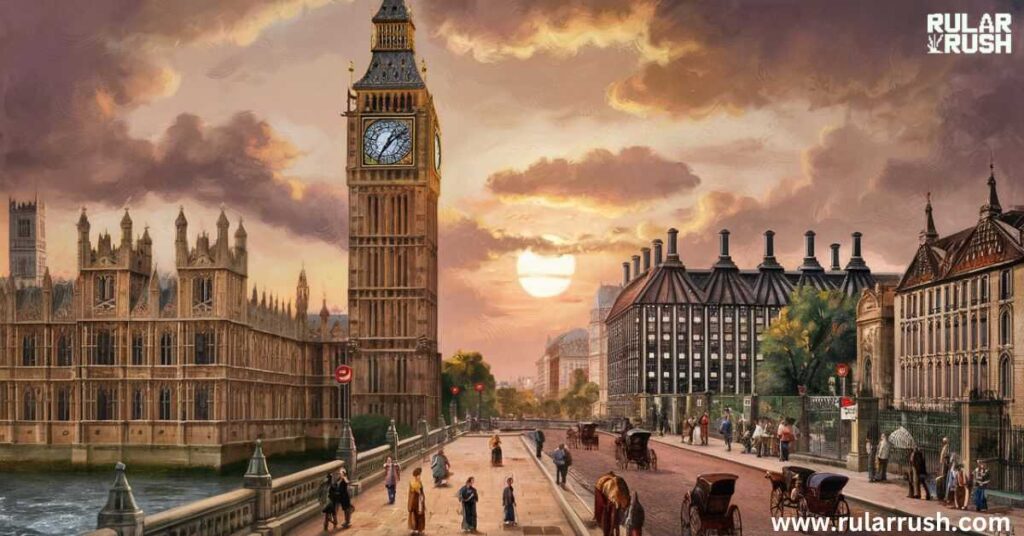
The historic Ha’Penny Bridge spanning the River Liffey measures approximately 40 meters, providing a perfect pedestrian-scale example.
Bridge details:
- Exact span: 43 meters
- Width: 3.66 meters
- Construction date: 1816
- Style: Single elliptical iron arch
- Daily foot traffic: 30,000 people
Cricket Pitch Measurements
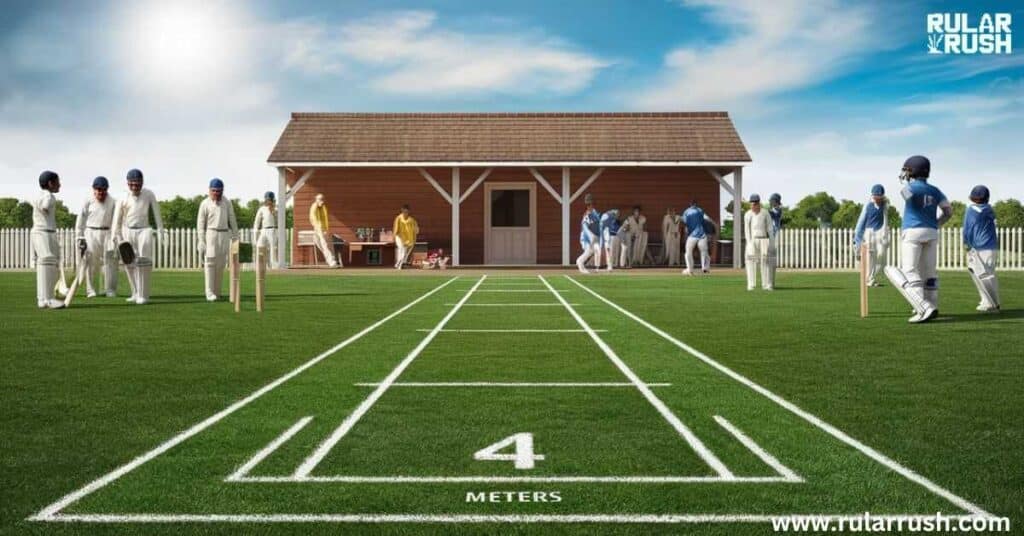
Two regulation cricket pitches placed end-to-end create another sports-related 40-meter example.
Cricket field specifications:
- Single pitch length: 20.12 meters
- Pitch width: 3.05 meters
- Running distance: 17.68 meters
- Two pitches combined: 40.24 meters
Real-World Applications of 40-Meter Measurements
Understanding 40 meters proves valuable in numerous fields:
Architecture and Construction:
- Building setback requirements
- Parking lot design
- Public space planning
- Swimming pool layouts
- Stadium seating arrangements
Transportation:
- Highway off-ramp design
- Airport runway spacing
- Railway platform length
- Ship docking facilities
- Bus terminal design
Sports and Recreation:
- Athletic field design
- Pool length standards
- Track and field layouts
- Spectator viewing distances
- Training facility requirements
Urban Planning:
- Street width standards
- Park pathway design
- Public plaza dimensions
- Emergency access requirements
- Pedestrian crossing distances
Practical Visualization Tools
Modern technology helps us understand 40 meters:
- Augmented reality apps
- 3D modeling software
- Virtual reality experiences
- Interactive museum displays
- Mobile measurement tools
Case Studies in 40-Meter Applications
Urban Development Project
A recent city planning project in Seattle used the 40-meter standard for:
- Street block lengths
- Building separation
- Public square dimensions
- Green space requirements
- Pedestrian walkway width
Sports Facility Design
Olympic training centers utilize 40-meter measurements for:
- Pool length standards
- Track segments
- Court combinations
- Equipment spacing
- Viewer distance calculations
Historical Preservation
Restoration projects often reference 40-meter examples:
- Bridge span repairs
- Tower height assessments
- Monument protection zones
- Archaeological site mapping
- Heritage building setbacks
Educational Applications
Teaching 40-meter concepts helps in:
- Mathematics education
- Physics demonstrations
- Architecture studies
- Engineering principles
- Sports science
Future Implications
The 40-meter standard continues influencing:
- Sustainable building design
- Urban mobility planning
- Sports facility evolution
- Transportation infrastructure
- Public space development
frequently asked questions
How long is a meter in feet?
One meter equals 3.28084 feet. For quick mental math, you can round it to 3.3 feet.
How far away is 40 m?
40 meters equals 131.2 feet or 43.7 yards. Picture it as three semi-trailer trucks lined up or two tennis courts side by side.
How far is 40 meters deep?
40 meters deep equals 131.2 feet in depth, about the same as a 13-story building’s height or twice the length of a standard bowling lane.
How long is a 40 meter dash in feet?
A 40-meter dash spans131.2 feet, which is roughly the length of the Chicago Water Tower laid horizontally or one and a half baseball base distances.
Conclusion
From the towering heights of Big Ben to the historic span of Dublin’s Ha’Penny Bridge, 40 meters manifests in countless ways throughout our world. This measurement connects architecture, nature, sports, and transportation in fascinating ways. Understanding these examples helps us better appreciate the scale of our built environment and natural world.
Whether you’re designing a sports facility, planning urban spaces, or simply trying to comprehend large-scale measurements, these 40-meter examples provide practical reference points. They transform an abstract number into tangible, relatable distances that we can observe in our daily lives.
“Measurements become meaningful when we can relate them to the world around us.” – Journal of Architectural Studies, 2023
Related Article:https://rularrush.com/things-that-are-20-inches-long-big/

Elizabeth is an experienced blogger at “Rular Rush,” specializing in delivering precise and insightful content on various measurement topics. With a passion for simplifying complex concepts, she brings clarity and depth to each post, making technical information easy to understand for readers worldwide.






